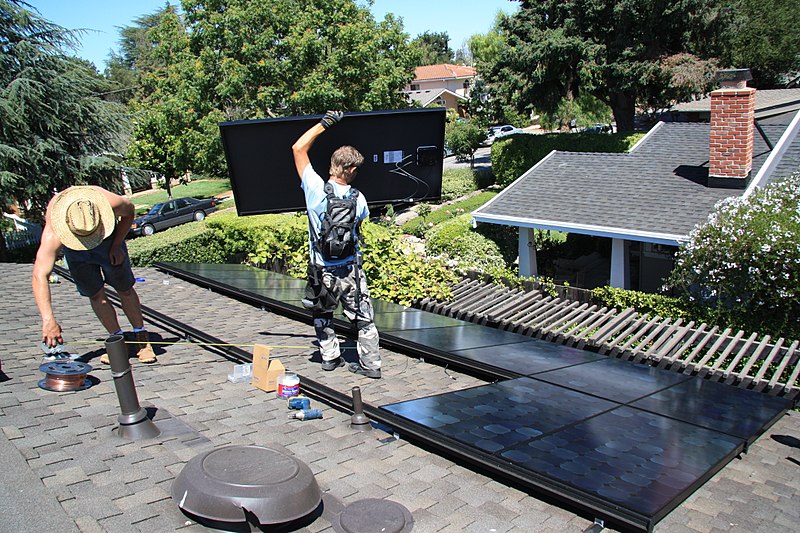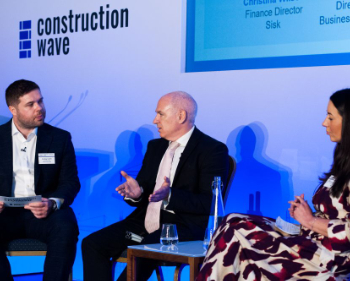Getting zero carbon done
Contents |
[edit] Introduction
While COVID-19 dominates global and national headlines in 2020, the ongoing prospect of climate change is also being taken seriously by policy makers. In November 2020, the Government issued a 10 point plan for a 'green industrial revolution', which aims to help tackle climate change by getting the UK to net zero carbon emissions by 2050.
The 2030 ban on internal combustion engine vehicle sales in the plan is clearly a positive step, but collaboration between industry, the Government and Distribution Network Operators (DNOs) will be vital to make it work. The extension of the Green Homes Grant was a useful response, but there is much work to be done to enable a skilled and trained workforce that can deliver results.
Meanwhile, we look forward to more detail on how the 10 point plan will be achieved, in addition to the release of the energy white paper and the next iteration of the Building Regulations and the Future Homes Standard, both of which will be key to future carbon reductions.
[edit] Industry vs climate change
Evidence shows we have little time to usefully mitigate the increasing effects of global warming. ECA is heavily focused on supporting the electrotechnical and wider engineering services industry in delivering the technologies and skills needed to help meet the UK Net Zero Carbon 2050 targets - and to deliver them as soon as possible.
To this end, ECA and partners have been looking for significant improvements in policy and fiscal support for clean energy and energy efficiency measures, enabling us to ‘build back’ better and deliver lower carbon economic recovery.
ECA has launched a new series of video shorts under the banner of Get Zero Carbon Done. These videos highlight several key areas where our sector can contribute significantly to further UK decarbonisation, and which will also need major upskilling.
All three videos are available from the links below:
[edit] Tools for success
ECA, working with Government and industry stakeholders, will be looking for the adoption at scale of low to no carbon energy systems and energy efficiency measures. This need to include the delivery and installation of:
- Solar photovoltaic (PV).
- Electrical energy storage systems (EESS).
- Heat pumps (air-sourced, ground-sourced, water sourced and air to air).
- Direct electrification of heating (infra-red, under-floor heating, storage-heating).
- Wind turbines.
- Hydropower.
- Energy efficiency measures.
- Smart building controls.
- Electrification of transport.
This link provides a list of eight low-to-no-carbon technologies that all installers and designers can consider.
[edit] Skills for the future
We must ensure that low carbon installation is carried out by a suitably trained and competent workforce. This means practically useful and properly scoped training for new entrants, notably in the form of apprenticeships, but also for the very much larger cohort of existing installers who also need to upskill for the low-carbon economy.
In order for Net Zero Carbon 2050 to be achievable, full support and commitment for the necessary skills is needed by both Government and industry. Long term market confidence and policy direction is also vital to give companies surety and enable them to invest in their workforce.
There has never been a more exciting time to be a part of the UK electrotechnical industry, nor a time that requires such urgency for the skills, products and systems that our sector can deliver.
This article originally appeared on the ECA website under the headline, 'A clear route to Getting Zero Carbon Done'. It was written by Luke Osborne, ECA Energy & Emerging Technologies Solutions Advisor and published on 17 November 2020.
--ECA
[edit] Related articles on Designing Buildings Wiki
- Articles by the Electrical Contractors' Association (ECA).
- A zero-carbon UK by 2050?
- Boiler markets and the green recovery.
- Building Back Better: Net zero carbon and BREEAM.
- Building regulations.
- Electric vehicle future.
- Engineers make policy decisions a reality.
- Future Homes Standard.
- Get ready for green jobs and upgrade projects.
- Net zero carbon 2050.
- Renewable energy.
- Zero carbon by 2050 - pipe dream or possibility?
[edit] External resources
Featured articles and news
International Electrician Day, 10 June 2025
Celebrating the role of electrical engineers from André-Marie Amperè, today and for the future.
New guide for clients launched at Houses of Parliament
'There has never been a more important time for clients to step up and ...ask the right questions'
The impact of recycled slate tiles
Innovation across the decades.
EPC changes for existing buildings
Changes and their context as the new RdSAP methodology comes into use from 15 June.
Skills England publishes Sector skills needs assessments
Priority areas relating to the built environment highlighted and described in brief.
BSRIA HVAC Market Watch - May 2025 Edition
Heat Pump Market Outlook: Policy, Performance & Refrigerant Trends for 2025–2028.
Committing to EDI in construction with CIOB
Built Environment professional bodies deepen commitment to EDI with two new signatories: CIAT and CICES.
Government Grenfell progress report at a glance
Line by line recomendation overview, with links to more details.
An engaging and lively review of his professional life.
Sustainable heating for listed buildings
A problem that needs to be approached intelligently.
50th Golden anniversary ECA Edmundson apprentice award
Deadline for entries has been extended to Friday 27 June, so don't miss out!
CIAT at the London Festival of Architecture
Designing for Everyone: Breaking Barriers in Inclusive Architecture.
Mixed reactions to apprenticeship and skills reform 2025
A 'welcome shift' for some and a 'backwards step' for others.
Licensing construction in the UK
As the latest report and proposal to licence builders reaches Parliament.
Building Safety Alliance golden thread guidance
Extensive excel checklist of information with guidance document freely accessible.
Fair Payment Code and other payment initiatives
For fair and late payments, need to work together to add value.
Pre-planning delivery programmes and delay penalties
Proposed for housebuilders in government reform: Speeding Up Build Out.
High street health: converting a building for healthcare uses
The benefits of health centres acting as new anchor sites in the high street.


























